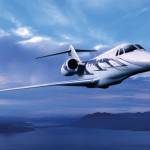
I live an intense jet set life. I have flown way more than 10 million miles during my life.
I live much of my life up in the air as did George Clooney’s movie character. People regularly wonder about my lifestyle and ask me how on earth I keep up with such an intense schedule of researching, writing, teaching and consulting as I jet full time across so many time zones. They also ask me how I get by on such little rest and still remain so consistently energized. Jetsetting across time zones seems to have little or no effect on me.
So, because I seem to do amazingly well as I live my jet set life, I thought I would share some of the actions that I have certainly found to be helpful as I fly across so many time zones in the jet stream above 30,000 feet. These actions could potentially assist you in reducing any of the common symptoms you may be experiencing if and when your body’s normal circadian rhythm gets disrupted.
Jet lag symptoms can include: anxiety, constipation or diarrhea, coordination difficulty, delayed time response, difficulty concentrating, disorientation, dry eyes, headache, irritability, nausea, sleepiness, sleeplessness and sweating. These symptoms tend to be accentuated when you travel eastwardly over time zones, when you seem to experience a “loss” of time rather than a “gain.” The more the difference in time zones, the more accentuated your symptoms may be. Though these symptoms are temporary, usually resolving themselves within a week, there are actions you can take to prevent them or cope with them.
First: Ask yourself the following question:
“What is truly most important to me? What is my highest value or priority? What is the most meaningful mission or chief aim I feel I am dedicated to fulfilling at this moment in or for my life?”
Be honest. Get real. Don’t inject social idealisms, or other important people’s expectations. Write this down concisely in a brief sentence format by using as few of words as possible.
Second: Ask yourself the following question and write 30 different, truly thoughtful, answers to it.
“How, specifically, are whatever actions or responsibilities I am doing in my professional or personal life at this moment helping me fulfill what is most meaningful to me, my highest priority, my mission or purpose, or my chief aim?”
Keep answering this question over and over again with sincere and meaningful answers until you truly feel grateful for the opportunity to travel the globe fulfilling whatever is deeply most important to you.
When you see that whatever you are doing is on the way and not in the way, you will be more grateful and present in time when you travel. The more grateful and present you are, the less difference in time zones you will feel. Gratitude opens up the heart and lets love, inspiration and enthusiasm spontaneously emerge from within. These states of heart and mind help you transcend any of the effects of jet lag. When you love what you do and do what you love, you are more present and do not get affected nearly as much by jet lag as you pass through the various time zones around the globe. People who are ungrateful and uninspired about what they do and why they have to fly are much more affected.
“Keep Your Inspiration Up And Going By Filling Your Landing Day With High-Priority Actions That Inspire You The Moment You Hit The Ground.”
Third: State to yourself the following internal affirmation. It is the very one I have affirmed multiple times daily for 35 years:
“The universe is my playground, the world is my home, every country is another room in the house and every city is another opportunity and platform to share my heartfelt service and message of inspiration and love.”
When you see the world as a large, single house, it helps dissolve the effects of jet lag. Just as it is for live information on the Internet, the time is all “now” everywhere in the world. When you have an astronomical sphere of awareness and influence, the worldly globe seems small in comparison.
Fourth: Drink adequate water. Water is the universal solvent. It neutralizes volatilities in internal biochemistry, blood sugar levels and assists in normalizing disrupted endocrine hormones and overall biophysiology.
Fifth: Reduce or eliminate stimulants (tea, coffee) and sedatives (sleeping pills, alcohol) that induce volatilities in endocrine or physiological function. Anything that perturbs psychology or physiology or adds volatility to the internal biochemistries reduces longevity and disturbs mental and physical capacities and functions. These aggravate the effects of jet lag.
Sixth: Moderate your eating. Overeating is unwise under any circumstance and in any setting, so do not overeat and lie down immediately afterwards. A full stomach can restrict your diaphragmatic excursion and function. Your diaphragm is your energy dynamo. If it is impeded so will be your vitality. Breathing deeply oxygenates your blood and elevates your energy levels. If you eat a small meal, wait an hour. If you eat a moderate meal, wait two hours. If you eat a full meal, wait three hours before lying completely down. It is wiser, at least initially, to only lean partially back for the first few hours if you eat a full meal. Eat to live moderately – do not live to eat.
Seventh: Have a full schedule ready the moment you land so you do not have time to give yourself any excuses to lag when you land. Keep your inspiration up and going by filling your landing day with high-priority actions that inspire you the moment you hit the ground. Be sure you also grab a few moments of full spectrum sunlight for a booster to reset your internal endocrine clock.
Eighth: When sleeping, attempt to split the time zones to neutralize any vast distinction in times. When possible, graduate your difference in sleeping times days before departure and after arrival.
Ninth: If you have a flight that is less than the time you normally require for adequate rest or sleep, consider eating a couple of hours before you board the jet. This will allow you to immediately get to sleep in a full reclined position the moment you board, and not do so on a full stomach.
Tenth: Dissolve any mental distraction before boarding so you can rest soundly. This can be done by writing every item that is on your mind (personally or professionally) and organize them either by when to do them or delegate them so you are not carrying around unnecessary thoughts in your head and clouding your mind with non-present distractions. A short pencil is better than a long memory.
By doing these ten actions above, you will be more present, grateful, centered and restful. Jet lag can be transcended. You have places to be, people to meet and lives to serve or fulfill. There is no reason you cannot be inspired by your life as a high flying, zone passing, jet set flier.
Dr. John Demartini is a human behavioral specialist, educator, internationally published author, consultant and founder of the Demartini Institute.







